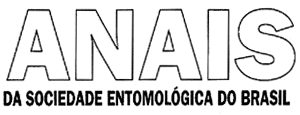The expression "Integrated Pest Management" (IPM or MIP in Portuguese) is completing 28 years since it first appeared in press. Since then integrated pest management or integrated pest control has become the paradigm of choice for activities that aim at attenuating the impact of all pests - plant diseases, weeds, and invertebrate or vertebrate animals - in agricultural production, in human and animal health, and in urban or rural structures. Despite the nearly universal acceptance of the concept, its practical application still is rather restricted, varying considerably among geopolitical regions, the nature of the crop, and, mainly, with the commitment and support of responsible governmental entities for programs dedicated to promote adoption of IPM. An objective assessment of the successful incorporation of IPM in agricultural practices is difficult because: a) lack of rigorous criteria to distinguish an IPM program from other traditional pest control activities, b) absence of a broadly based consensus on a definition of IPM, and c) paucity of reliable quantitative surveys of the agricultural area under IPM. Some have used the percentage of pesticide use reduction as a measure of the success of IPM. This measure, however, in the absence of other criteria, may not be appropriate for in some parts of the world introduction of IPM may lead to an increase in pesticide use, not a reduction. In our search to assess the expansion of IPM programs in the world, we concluded that it is essential to first achieve a consensus on the criteria to measure the nature of the program. In general these criteria depend on the level of IPM integration, the nature of the pests, the value of the crop, the availability of alternative control technologies, and the associated economic, environmental, and social risks. In view of the small volume of available data and in the absence of objective measurements of performance criteria, we opted to use as title for this paper an assertion to be questioned: is indeed IPM a global reality?
History; ecological basis; plant protection; control tactics; implementation















